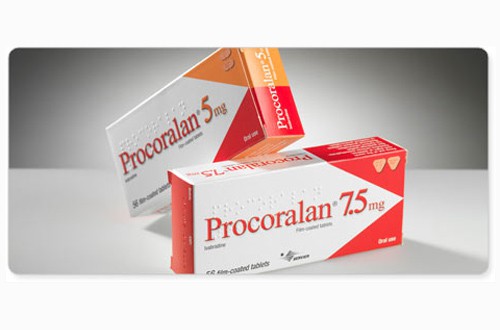
Patients with heart failure in England and Wales should soon have access to Servier’s Procoralan following a positive recommendation from the National Institute for Health and Clinical Excellence (NICE).
The Institute said the drug provided positive benefits in reducing mortality and improving quality of life in people with some types of chronic heart failure, as demonstrated in clinical trials.
The recommendation comes with a larger number of restrictions, however, with NICE limiting the drug’s use to patients who have chronic heart failure with systolic dysfunction, who are in sinus rhythm and whose heart rate is 75 beats per minute or more, and who have a left ventricular ejection fraction of 35 per cent or less.
In addition, NICE said Procoralan (ivabradine) should only be used in combination with a standard therapy, such as a beta-blocker, or when such therapies are not tolerated by the patient.
On top of this, treatment should be initiated by a heart failure specialist with access to a multi-disciplinary heart failure team, while certain aspects of treatment, including dose nitration, should only be carried out by healthcare professionals with a knowledge of heart failure.
Nevertheless, with heart failure thought to affect about 900,000 people in the UK, tens of thousands of patients should still have access to the drug.
These figures are expected to grow, according to NICE Health Technology Evaluation Centre’s director Professor Carole Longson.
“The prevalence of heart failure is expected to rise in the future as more people live longer generally, people survive longer with coronary artery disease and there are better treatments for heart failure.”
Prof Longson also explained the large number of restrictions on the drug’s use, saying that there was already “robust evidence” that such treatments as ACE inhibitors, beta-blockers and aldosterone antagonists were effective in managing heart failure.
“[The appraisal committee] concluded, therefore, that ivabradine could be considered a cost-effective use of NHS resources for treating chronic heart failure after optimal treatment with these drugs has been achieved and when patients are still symptomatic after receiving optimised initial therapies, or when beta-blockers are contraindicated or not tolerated by the patients.”
Commenting on the recommendation, Servier said: “As a research foundation and after many years of research, it is encouraging to know that the heart failure patients who may benefit from ivabradine, will have access to treatment.
“Heart failure is a devastating disease and we hope that with the optimisation of treatments such as ACE inhibitors and beta-blockers, and with access to innovative treatments such as ivabradine, many hospitalisations and deaths can be avoided.”
Heart failure costs the NHS an estimated £625m each year and accounts for one million in-patient bed days – 2 per cent of the NHS total – and 5 per cent of all emergency medical admissions to hospital. Moreover, hospital admissions because of heart failure are projected to rise by 50 per cent over the next 25 years, largely as a result of the ageing population.




